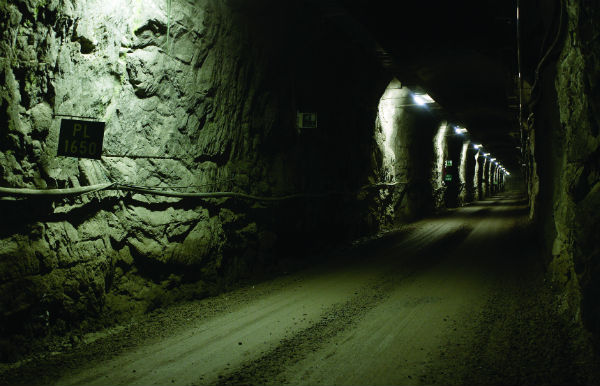 Finland’s VTT Technical Research Centre and the National and Regional Security Department of Bulgaria's National Nuclear Security Support Centre have signed a memorandum of understanding (MOU) in the field of radioactive waste management.
Finland’s VTT Technical Research Centre and the National and Regional Security Department of Bulgaria's National Nuclear Security Support Centre have signed a memorandum of understanding (MOU) in the field of radioactive waste management.
The MOU was signed during workshop in which Finland shared its experience in the management of high-level radioactive waste with Bulgarian stakeholders.
The aim of the 29 October workshop was to foster deeper cooperation towards the common goal of implementing a permanent high-level waste repository in Bulgaria.
The workshop included keynote messages from the Bulgarian Ministry of Energy, Finland Ministry of Economic Affairs and Employment – Energy Department, and Finland’s Foreign Affairs office represent by the Embassy of Finland in Bulgaria. Technical presentations were shared by Posiva Solutions Oy, STUK International and VTT of Finland, as well as Bulgaria's State Enterprise Radioactive Waste, Kozloduy Nuclear Power Plant and UNWE of Bulgaria.
“This event was very important to Bulgaria, to advance their repository roadmap and readiness with concrete actions, technical targets, policy needs and communication plans,” said Associate Professor Svetoslav Spassov, director of Bulgaria’s Nuclear Security Support Centre.
The workshop also addressed the recommendations of a 2018 International Atomic Energy Agency (IAEA) Integrated Review Service for Radioactive Waste and Spent Fuel Management, Decommissioning and Remediation (Artemis) mission to Bulgaria.
Following the ten-day mission in June 2018, the Artemis review team noted that Bulgaria has a strong legal and regulatory basis for the safe management of radioactive waste and spent fuel. It also said the existence of predisposal facilities demonstrated Bulgaria’s commitment to implement the National Strategy.
However, it recommended the Bulgarian government should avoid limiting the timeframe for the National Strategy to 2030 and should include “long-term milestones and schedules that will consider the policy requirements, planning assumptions, strategic preferences and contingencies for the entire programme lifecycle.” It also said the government should ensure financial provisions are made for geological disposal.
“There are a wide-range of lessons learned from Finland’s excellent experience in waste management, geological repositories, safety, stakeholder engagement and regulatory requirements that Finland is prepared to share with other countries looking to become the next leaders with us for implementing waste management solutions,” said Dr Erika Holt, customer account lead at VTT.
The outcome of the workshop included plans to be implemented in 2021 to facilitate the deeper cooperation.
Photo: The Onkalo underground rock characterisation facility in Olkiluoto, Finland (Credit: Posiva)






